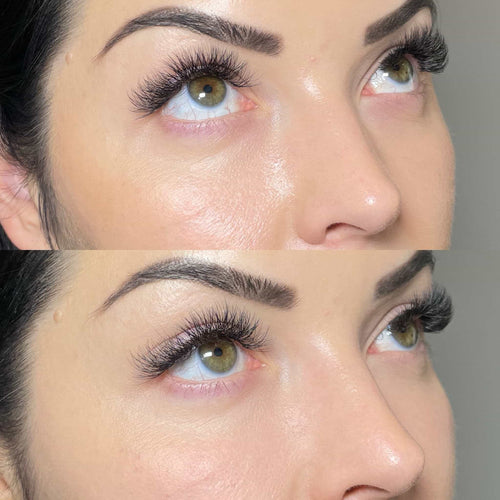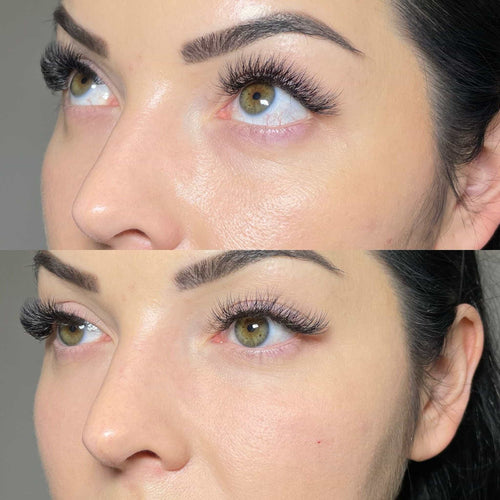Schedule Your Dermal Filler Appointment at It’s Me and You Clinic with Dr. Laura Geige
Risks During Pregnancy
Hormonal Changes
Pregnancy brings about a symphony of hormonal shifts, which are essential for the development and well-being of both mother and baby.
These fluctuations can impact various bodily systems, including skin elasticity, blood clotting, and immune response.
This makes certain medical procedures, such as lip fillers, potentially risky during pregnancy.
Let’s delve into the specific risks associated with lip filler injections while pregnant:
-
Hormonal Vulnerability: The dramatic surge in hormones like estrogen and progesterone can alter how your body reacts to injected substances.
-
Increased Blood Flow: Pregnancy elevates blood volume, potentially leading to faster absorption of filler material and unpredictable results.
-
Thinner Skin: Hormonal changes often cause skin thinning, making it more susceptible to bruising, swelling, and other complications after injections.
-
Potential Allergic Reactions: Pregnancy can heighten the likelihood of allergic reactions to substances, including those in filler products.
-
Unknown Long-Term Effects: Research on the impact of dermal fillers during pregnancy is limited. The long-term consequences for both mother and fetus remain unclear.
Due to these inherent risks, it’s strongly advised to avoid lip filler injections throughout pregnancy. It’s best to prioritize your health and the well-being of your baby by postponing any cosmetic procedures until after delivery.
Remember, consulting with your doctor is crucial for personalized advice regarding any medical or aesthetic treatments during pregnancy.
Weakened Immune System
Pregnancy brings about numerous physiological changes that impact a woman’s body, including her immune system.
During pregnancy, the immune system undergoes modifications to accommodate the growing fetus, which is recognized as foreign tissue. These changes are crucial to prevent the mother’s immune system from attacking the developing baby. However, this weakened state can make pregnant women more susceptible to infections and complications.
Risks During Pregnancy: Weakened Immune System

Book a Dermal Filler Appointment with Dr. Laura Geige Now
A compromised immune system during pregnancy increases the risk of:
-
Infections: Common illnesses like colds, flu, and urinary tract infections can pose a greater threat to pregnant women.
-
Complications: Infections during pregnancy can lead to serious complications for both mother and fetus, such as preterm labor, miscarriage, and congenital anomalies.
-
Reserve Your Dermal Filler Consultation with Dr. Laura Geige at It’s Me and You Clinic
Transmitted Diseases: Certain infections, such as rubella, cytomegalovirus (CMV), and toxoplasmosis, can be particularly harmful to the developing baby.
Lip fillers are injectable substances that temporarily enhance lip volume. While generally considered safe for individuals with healthy immune systems, their use during pregnancy carries potential risks due to:
-
Unknown Effects on the Fetus: The long-term effects of injecting filler substances into a pregnant woman’s body are not well-established.
-
Potential for Allergic Reactions: Pregnant women may be more prone to allergic reactions due to hormonal changes.
-
Risk of Infection: Any injection procedure carries a risk of infection, which is heightened in a weakened immune system.
Given the potential risks and lack of conclusive data on safety during pregnancy, it is generally recommended to avoid lip fillers while expecting.
Dermal Fillers and Pregnancy
Lack of Safety Data
Dermal fillers are a popular non-surgical cosmetic procedure that involves injecting substances like hyaluronic acid into the skin to plump up areas, reduce wrinkles, and enhance facial contours. However, when it comes to pregnancy, these injectables become a subject of caution due to the lack of robust safety data regarding their effects on both mother and fetus.
The scientific community hasn’t conducted extensive studies on the long-term implications of dermal fillers during pregnancy. This limited research leaves many uncertainties about potential risks, making it a risky proposition for expectant mothers.
One primary concern is that the injected substances could potentially cross the placenta and reach the developing fetus. While hyaluronic acid itself is generally considered biocompatible and naturally occurring in the body, its impact on a growing fetus is unknown.
Moreover, the injection process itself can involve some risks, such as bruising, swelling, and infection, which could potentially be exacerbated during pregnancy due to hormonal changes and increased blood flow.

Furthermore, some dermal fillers contain additives or stabilizers that may have unknown effects on pregnancy. The lack of data makes it impossible to confidently assess the safety of these components for both mother and baby.
As a precautionary measure, most healthcare providers recommend avoiding dermal fillers during pregnancy and breastfeeding. It’s simply not worth taking the risk when safer alternatives are available after childbirth.
If you are considering cosmetic procedures during your pregnancy, it is crucial to consult with your doctor or a qualified dermatologist who can provide personalized advice based on your individual health history and circumstances.
Potential Complications
Dermal fillers are a popular cosmetic procedure that involves injecting substances like hyaluronic acid into the skin to add volume and plumpness. They can be used to enhance lips, smooth wrinkles, and define facial contours.
However, using dermal fillers during pregnancy is strongly discouraged due to potential risks to both mother and baby.
Pregnancy and its hormonal fluctuations can affect how the body metabolizes substances injected into it.
This unpredictability makes it difficult to assess the safety of dermal fillers for expectant mothers.
Here’s a breakdown of potential complications:
- Unknown Effects on Fetal Development: The long-term effects of dermal filler ingredients on a developing fetus are largely unknown. Some studies suggest that certain fillers could potentially cross the placenta and impact fetal development.
- Allergic Reactions: Pregnant women may be more susceptible to allergic reactions, and fillers can trigger these.
- Inflammation and Infection: Filler injections carry a risk of inflammation and infection, which can be particularly concerning during pregnancy when the immune system is already compromised.
Furthermore, some studies have linked certain filler ingredients to premature birth and low birth weight. While more research is needed in this area, the potential risks simply outweigh any perceived cosmetic benefits during pregnancy.
It’s essential for pregnant women to prioritize their health and the well-being of their baby. Delaying cosmetic procedures like dermal fillers until after delivery is always the safest option.
Alternatives for Enhancing Lips
Skincare Routine
Enhancing lips can be a desire for many, but when considering procedures like lip fillers, pregnancy presents unique challenges. During this time, your body undergoes significant hormonal shifts and increased blood flow, which can make certain cosmetic treatments riskier. While temporary lip enhancement options exist, it’s crucial to consult with a medical professional before making any decisions.
If you’re looking for alternatives to lip fillers while pregnant, there are several skincare ingredients and techniques that can help plump and define your lips naturally:
Hyaluronic Acid: This ingredient is a humectant, meaning it attracts and retains moisture. Applying hyaluronic acid-based serums or lip balms can temporarily increase lip volume by hydrating the skin.
Peptides:** These short chains of amino acids stimulate collagen production, which is essential for plump, youthful skin. Look for lip products containing peptides like palmitoyl pentapeptide-4 or matrixyl 3000.
Exfoliation: Gently exfoliating your lips removes dead skin cells, revealing a smoother, fuller appearance. Use a soft lip scrub or a damp washcloth to buff away dry flakes.
Lip Massage:** Massaging your lips with a gentle upward motion can improve circulation and temporarily increase fullness. You can use your fingertips or a jade roller for this technique.
Hydration: Staying well-hydrated is crucial for overall skin health, including lip plumpness. Drink plenty of water throughout the day.
**Lip Makeup:** Using lip liners and glosses can create the illusion of fuller lips. Choose a liner that matches your natural lip color and line just outside your natural lip line. Follow with a glossy lipstick or balm for added volume.
Remember, these methods provide temporary enhancement rather than permanent results. If you’re interested in more long-lasting solutions, discuss your options with a qualified medical professional after pregnancy.
Makeup Techniques
Lip augmentation procedures, including using dermal fillers, are generally considered unsafe during pregnancy.
This is due to a lack of sufficient research on the potential effects of these injections on both the mother and developing fetus.
While most lip filler ingredients are temporary and naturally absorbed by the body, there’s a possibility of unknown long-term consequences during pregnancy.
The risks associated with injecting foreign substances into the lips during pregnancy can outweigh any perceived cosmetic benefits.
Fortunately, expectant mothers have several alternative options to enhance their lips without resorting to invasive procedures:
Makeup Techniques
Lip Liner: Using a lip liner slightly darker than your natural lip color can create the illusion of fuller lips by defining and overlining the border.
Apply it softly, blending gently for a natural look.
Exaggerate Cupid’s Bow: Creating a more prominent Cupid’s bow (the dip in the center of your upper lip) can make your lips appear fuller.
Use a light hand to add definition with a contour brush or a small angled eyeshadow brush.
Highlighting: Applying a shimmery highlighter on the center of the upper and lower lips can create the illusion of fullness and plumpness.
This technique catches the light, drawing attention to the lip shape.
Lipgloss:** A shiny lipgloss adds volume by reflecting light and creating a more hydrated appearance.
Choose a gloss with a slightly thicker texture for added plumping effect.
Other Alternatives
Natural Remedies: Certain foods like cucumbers and watermelon are said to hydrate the lips naturally, potentially enhancing their appearance.
**Hydration:** Maintaining proper hydration is essential for healthy, plumper-looking lips.
Drink plenty of water throughout the day and avoid dehydrating substances like alcohol and caffeine.
N City Magazine Dejour Magazine K Aesthetics Studio
- Why Can’t I Vape After Lip Filler - November 13, 2025
- What Is The Best Age To Get Cheek Fillers? - November 12, 2025
- What Are CBD Gummies And How Do They Help With Pain Relief - November 10, 2025
